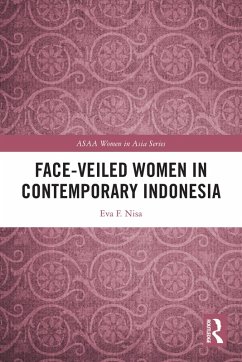
The Oxford Handbook of European Islam (eBook, ePUB)

PAYBACK Punkte
8 °P sammeln!
For centuries, Muslim countries and Europe have engaged one another through theological dialogues, diplomatic missions, political rivalries, and power struggles. In the last thirty years, due in large part to globalization and migration from Islamic countries to the West, what was previously an engagement across national and cultural boundaries has increasingly become an internalized encounter within Europe itself. Questions of the Hijab in schools, freedom of expression in the wake of the Danish Cartoon crisis, and the role of Shari'a have come to the forefront of contemporary European discou...
For centuries, Muslim countries and Europe have engaged one another through theological dialogues, diplomatic missions, political rivalries, and power struggles. In the last thirty years, due in large part to globalization and migration from Islamic countries to the West, what was previously an engagement across national and cultural boundaries has increasingly become an internalized encounter within Europe itself. Questions of the Hijab in schools, freedom of expression in the wake of the Danish Cartoon crisis, and the role of Shari'a have come to the forefront of contemporary European discourse. The Oxford Handbook of European Islam is the first collection to present a comprehensive approach to the multiple and changing ways Islam has been studied across European countries. Parts one to three address the state of knowledge of Islam and Muslims within a selection of European countries, while presenting a critical view of the most up-to-date data specific to each country. These chapters analyse the immigration cycles and policies related to the presence of Muslims, tackling issues such as discrimination, post-colonial identity, adaptation, and assimilation. The thematic chapters, in parts four and five, examine secularism, radicalization, Shari'a, Hijab, and Islamophobia with the goal of synthesizing different national discussion into a more comparative theoretical framework. The Handbook attempts to balance cutting edge assessment with the knowledge that the content itself will eventually be superseded by events. Featuring eighteen newly-commissioned essays by noted scholars in the field, this volume will provide an excellent resource for students and scholars interested in European Studies, immigration, Islamic studies, and the sociology of religion.
Dieser Download kann aus rechtlichen Gründen nur mit Rechnungsadresse in A, B, BG, CY, CZ, D, DK, EW, E, FIN, F, GR, HR, H, IRL, I, LT, L, LR, M, NL, PL, P, R, S, SLO, SK ausgeliefert werden.













